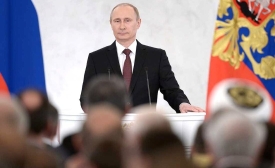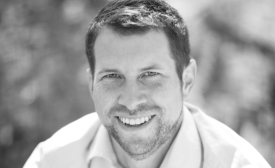russia
Thirty-three years ago this week, Soviet fighter jets shot down a Korean Airlines passenger jet that had strayed into Soviet airspace while on a scheduled flight from New York to Seoul. Two hundred and sixty-nine passengers and crew were killed, including a U.S. Congressman. At first, Moscow denied that this had happened, then it claimed that the commercial flight had been gathering intelligence. No apologies were ever made.

The USSR responded to negative press with denial and censorship. Now, Russia is relying on the same tactics.

Bret Schafer is the recipient of this year's award.
To promote Sino-Russian cultural exchange, 44 translated works were presented at a forum held by the China Written Works Copyright Society and the Russian Translation Institute at the Beijing International Book Fair on Friday.
The planting of false stories is nothing new; the Soviet Union devoted considerable resources to that during the ideological battles of the Cold War. Now, though, disinformation is regarded as an important aspect of Russian military doctrine, and it is being directed at political debates in target countries with far greater sophistication and volume than in the past.
What do these three recent events tell us about Russian foreign policy? Putin is able to think strategically, using all hard and soft power tools to promote Russian foreign policy interests. To the average Western observer, Russia's recent actions in the Caspian, Iran or its CSTO military exercise are viewed as three different and unrelated things.
Russian President Vladimir Putin described “soft power” in 2012 as “a matrix of tools and methods to reach foreign policy goals without the use of arms but by exerting information and other levers of influence.” His government has used state-owned media outlets like RT, formerly known as Russia Today, and other pro-Kremlin organizations to bend public opinion in other countries toward Russia.







